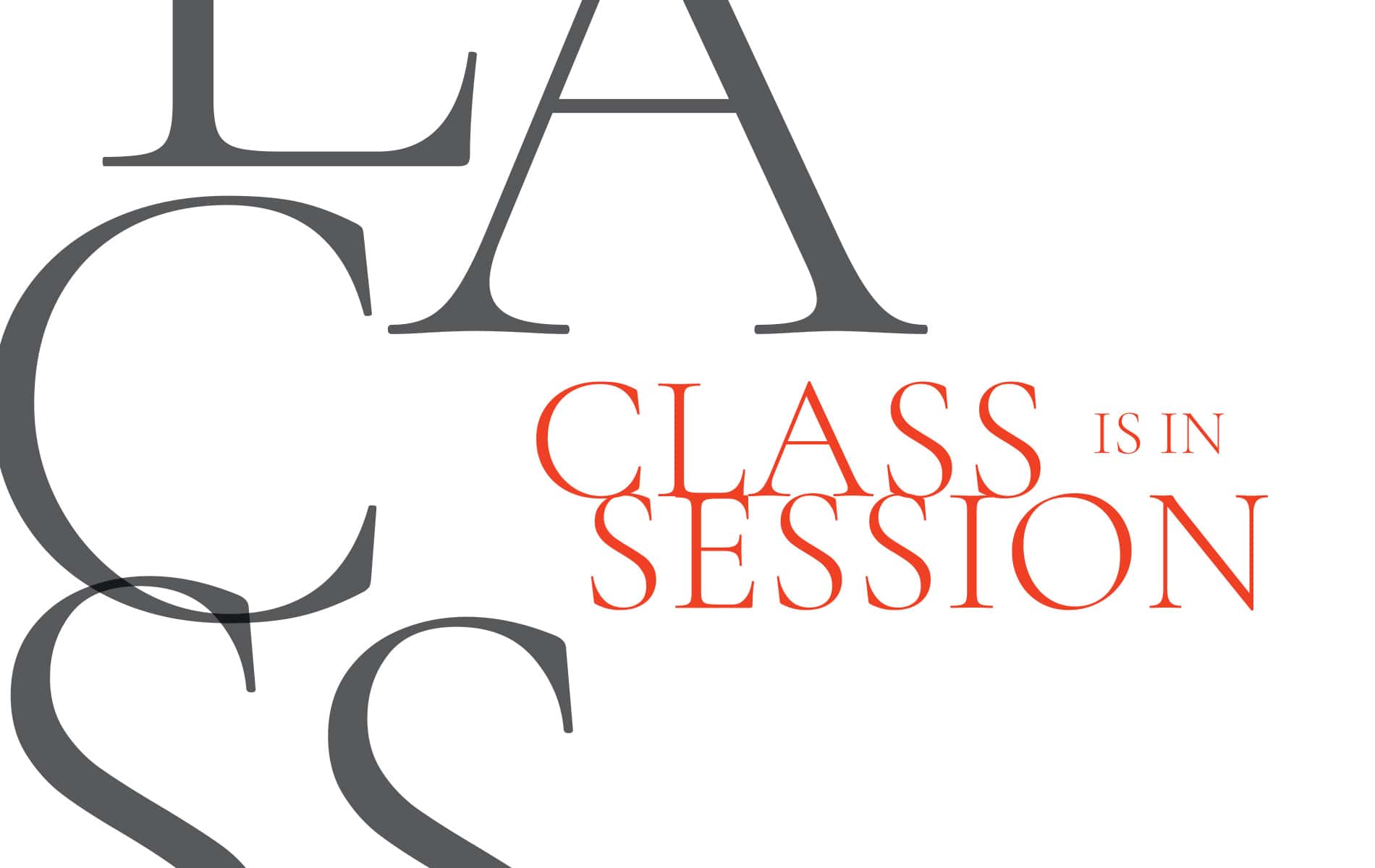
vie-magazine-suzanne-pollak-hero-min
Class Is in Session
Insights and Inspiration from Female Leaders in Business and Life
Suzanne Pollak, dean of the Charleston Academy of Domestic Pursuits, interviews nine incredible women on their careers, fears, relationships, and lessons learned. The following pages share their candid advice and perceptions in their own words.
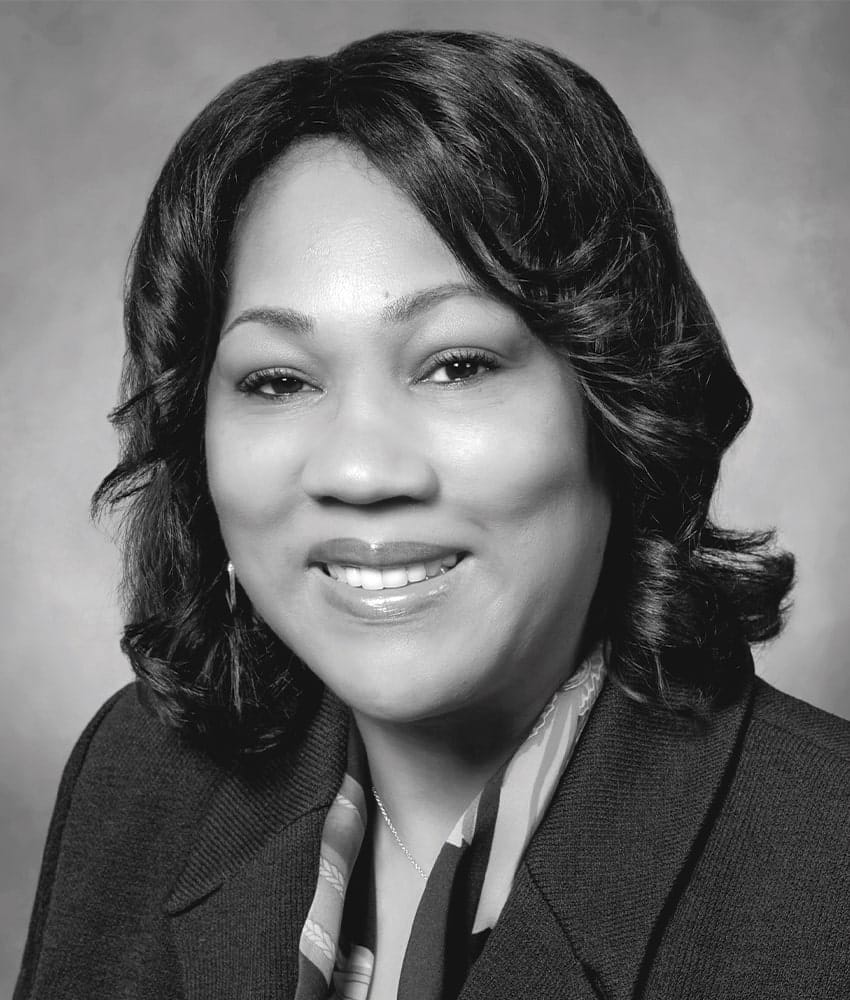
Dr. Joan Robinson-Berry
Senior Vice President of Engineering, Modifications, and Maintenance at Boeing Global Services
What regular circumstances still make you anxious?
Being a black female executive.
Speaking broadly, research shows that black executives suffer “social isolation”—for example, belonging to different clubs or enjoying different nonwork activities. Oftentimes, I’m identified first by my race and then by my accomplishments—think of all the news stories with headlines that include “first black CEO.” It means that, whether you like it or not, you are seen as a role model and you carry additional responsibilities of society’s expectations of you as representative of all black business professionals. Right or wrong, your actions are watched and viewed as indicative of a group.
All of these things can happen when people define black business professionals by their “otherness” rather than focusing on their requirements, performance, and merits. These obstacles drive anxiety, but remember this: obstacles can be overcome when you recognize them and then face them so that, ultimately, you can clear a path for others.
Here are some tips I give women and minorities to help reframe their anxiety and turn it into something positive: “It’s OK to be ‘different,’” and “Focus on the job at hand—good performance always rises to the surface.” You need to be yourself and bring your uniqueness to the table. Most importantly, be the CEO of your own career and protect your brand. Don’t expect anyone or anything else to define or navigate your career for you. Make sure to find sponsors and build an informal “board of directors” who have your best interests in mind and to whom you can go when you need help making important decisions or changes in your life.
How do you deal with relationship ruptures?
My faith plays an important role in how I manage my relationships—especially when there is strain or conflict. I am grounded in the biblical principles of forgiveness and I try to make conscious decisions to repair relationships by trying to let go of the past. This is not always easy. It takes a combination of self-discipline, building trust with others, having the courage to speak up in uncomfortable situations, and having a mind-set of always being humble and willing to forgive.
If your voice is not being heard, talk louder. If you see a situation where diverse people, thoughts, and ideas are not present, challenge the people who are not embracing an inclusive mind-set.
What are your most challenging professional vulnerabilities?
I feel most vulnerable when I don’t have a seat at the table—when I feel I can help make a difference on a critical business need and my voice is silenced. So what do I do to make sure I’m at the table? Demand inclusion. If your voice is not being heard, talk louder. If you see a situation where diverse people, thoughts, and ideas are not present, challenge the people who are not embracing an inclusive mind-set. Heck, if there is no room at the table, bring a folding chair! Sometimes a catalyst is needed to bring in the right voices and perspectives—don’t be afraid to advocate for inclusion.
What have been the most challenging obstacles for you in your career?
Work-life balance. I can speak from experience that every executive who has a family deals with stress and guilt about fulfilling our requirements at work and spending quality time with our families and loved ones. I address this personally by prioritizing faith, family, and factory. If I find myself off balance in the pursuit of these three things, I remind myself that while juggling these three areas is worthy, it’s not worthwhile if the endeavor creates more stress in my life.
I’m also real with myself. On any given day, something has to give—there just aren’t enough hours in the day. My approach is to set aside time on another day to devote to the activity you’ve slighted today. The bottom line—think of it less as a balance but as a blend instead. Take control of your schedule and your life and achieve a blend that minimizes stress and guilt. You’ll know when you find it.
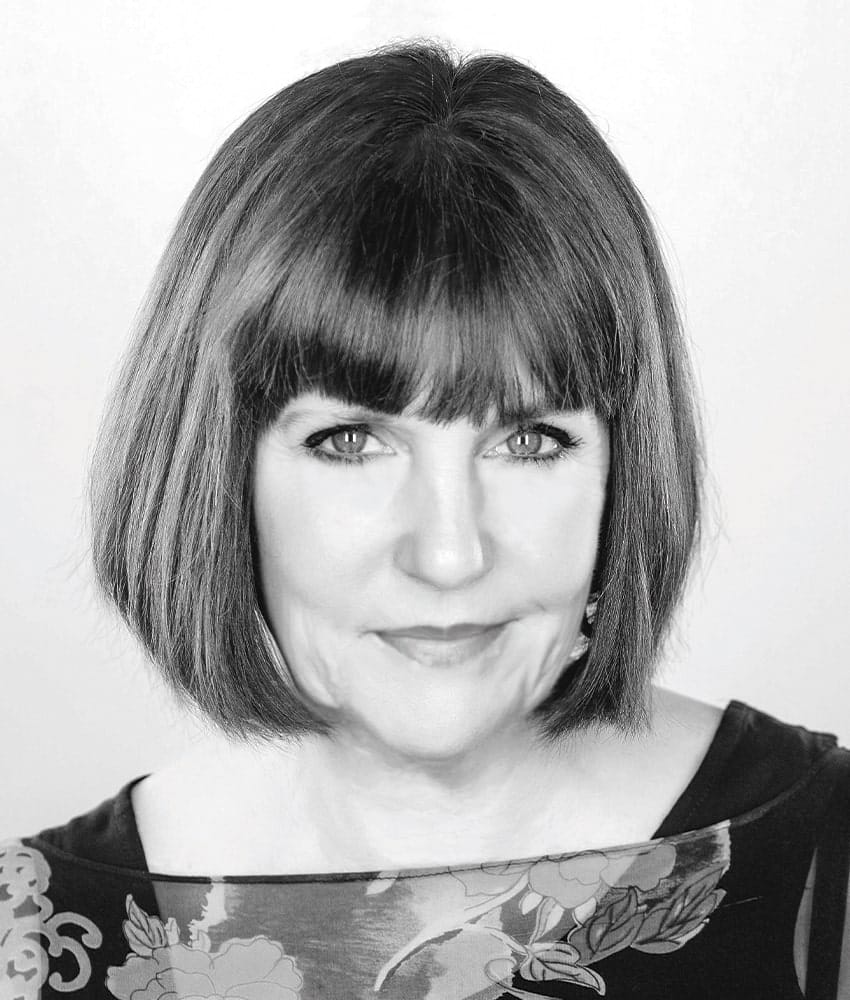
Wenda Millard
Vice Chairman, MediaLink
What regular circumstances still make you anxious?
I take seriously the expression “you only have one life,” and I have always wanted it to be as full as I can make it. I have done that, but sometimes I get concerned I can’t do all I want to do or all I committed to. I try to do everything I say I will do when I make a commitment—I just make a lot of them! I do know that I am always happier and feel more fulfilled when I am ultraproductive.
This means I am involved not only in my “day job,” but I also sit on the boards of Caleres (a $3 billion publicly held footwear company), several emerging companies, several nonprofits that work with children and educational programs, and the Charleston to Charleston Literary Festival. I am on the marketing committee of the James Beard Foundation and recently have been very active with Swing Left, an organization that is supporting Democratic candidates in the swing states for the House and the Senate and for Democratic candidates for president. One of my passions is to counsel women at all ages and stages about their careers (and lives!), and I host a number of events for women throughout the year. I do a lot of entertaining at home and try to spend a lot of time with family and friends. I can never play enough tennis and am always up for great travels. At times, there is definitely anxiety associated with my schedule.
What are your most challenging professional vulnerabilities?
Empathy is usually thought of as a great quality to have—and it is—but being very “in the moment” and understanding of others’ situations means that I am often tempted to make decisions that aren’t always based on hard-core analytics. I have a firm belief in my gut, and it’s not always easy to explain or justify certain points of view to others who base their decisions on data and logic. I value their quantitative skills, but I don’t think those things are the only factors that should be involved in decision-making. You have to trust yourself.
What have been the most challenging obstacles for you in your career?
Being short! I am five foot two, which I do consider to be a business obstacle. I have learned a number of tricks that allow me to appear taller: always measure the height of the podium the day before your speech so the microphone isn’t sticking out of your head; always take the first seat at the conference room table so you can adjust the chair upward; always choose a chair over a couch in a business setting so you are sure your feet touch the ground; never stand in the middle of two very tall people when your picture is being taken; stand up straight!
I started my professional career in the mid-1970s. Back then, the media and advertising business operated more like Mad Men than you might believe, meaning that much of the “accepted” behavior would land you on the #MeToo list today. It was a challenge being in that environment where drinking during the day and taking hours-long lunches, socializing with colleagues late into the night, “what happens at sales meetings stays at sales meetings,” and very offensive attitudes and behavior toward female professionals were the norm. Peggy Olson is real!
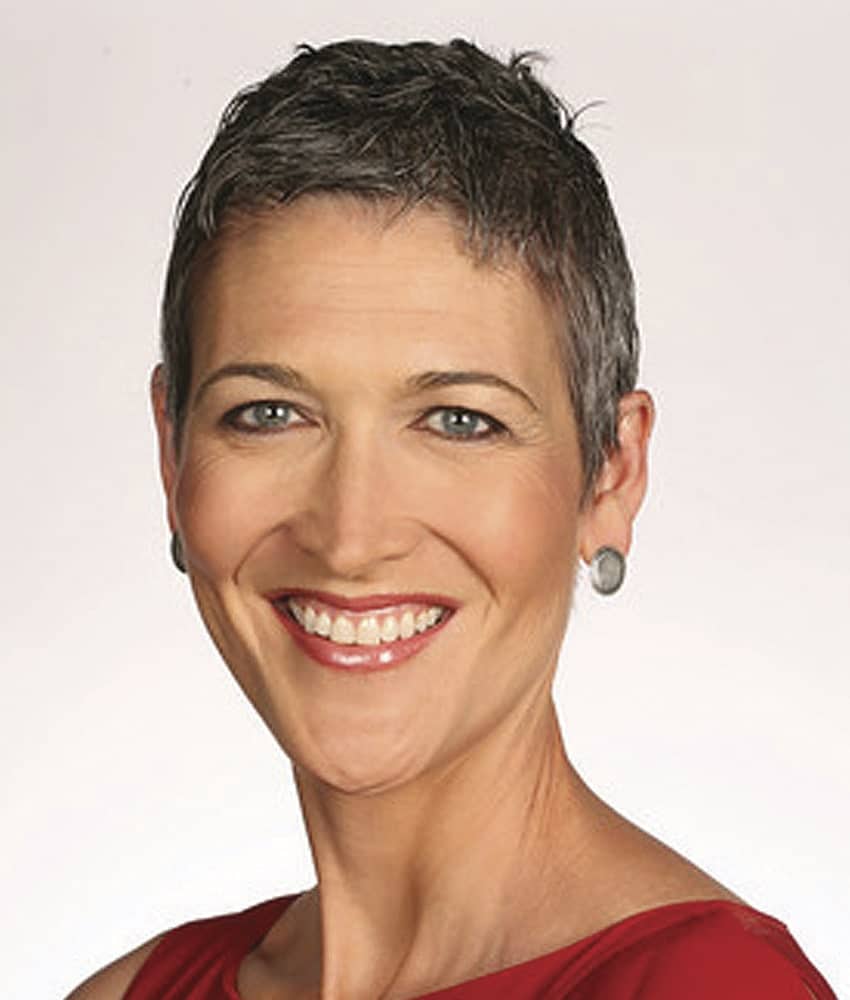
Photo courtesy of FOX News
Jennifer Griffin
National security correspondent for FOX News Channel
What regular circumstances still make you anxious?
After years of living in the Middle East covering wars and too many suicide bombings, I do not get anxious about life’s big events. Frankly, I am more comfortable in a crisis than dealing with life’s day-to-day annoyances. Going to the grocery store makes me anxious; figuring out which of my three children’s back-to-school nights to attend; how to be in two places at once; pulling the trigger on Expedia flights for a family vacation—all that makes me anxious. Not knowing where my teenage children are after midnight makes me anxious. I warn them that I can always find them—I am the NSA at our house.
Speaking on television and filling hours of airtime during breaking news when the president is deciding whether to launch a Tomahawk missile strike or when Bin Laden is killed does not make me nervous. My kids call me “Mommy Tsunami” because they say I leave a wake of destruction when I come home after a long day at the Pentagon.
After years of living in the Middle East covering wars and too many suicide bombings, I do not get anxious about life’s big events. Frankly, I am more comfortable in a crisis than dealing with life’s day-to-day annoyances.
How do you deal with relationship ruptures?
In general, I don’t allow relationships to rupture. I still have the same friends from when I was ten years old. I went to a girls’ school, and friendships mean the world to me. These relationships and the ones I have made with sources and colleagues at the Pentagon and across the Middle East after more than three decades in journalism are very important to me. Having to walk into a building and face the people you report on causes you to think twice before you burn sources or rupture relations. In Washington, as in life, relationships are all that matter.
What are your most challenging professional vulnerabilities?
I think all women who rise within any profession have to worry about the bias they face in terms of the tone they use in their communications at work. We have to worry that our emails, texts, or communications can be misconstrued or seen as “bossy,” so I use a lot of smiley faces and exclamation points in top lines and texts, which is antithetical to my personality for anyone who knows me.
What have been the most challenging obstacles for you in your career?
The most challenging obstacle for me during my career was when my colleagues were kidnapped in the Gaza Strip thirteen years ago. Eventually, they were freed unharmed, but I have other friends who were killed while covering the news, and others who were shot or lost limbs. The very real dangers of being a journalist in recent years have had a chilling effect on reporters’ willingness and ability to travel to war-torn countries overseas. That has been the biggest obstacle to pursuing my chosen career in the years since 9/11.
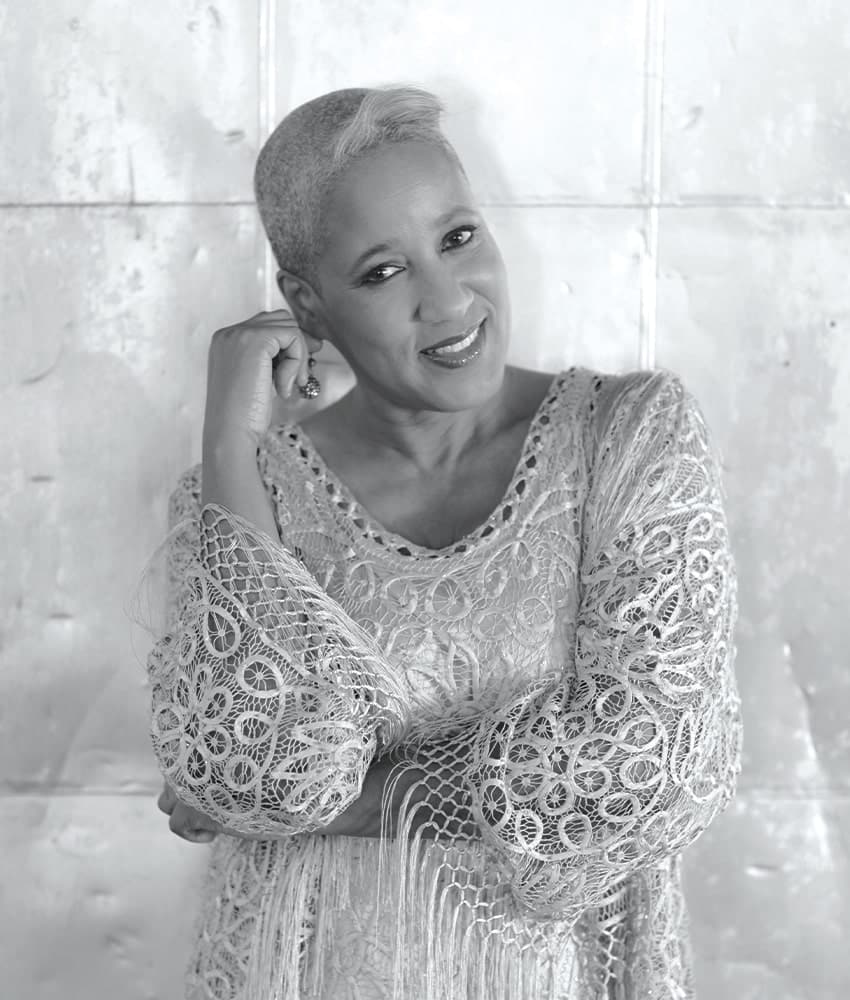
René Marie
Musician, lyricist, and composer
What regular circumstances still make you anxious?
Whoo, boy! I don’t think I will ever be comfortable with the competitive nature of the music business. I italicize music business because, left to our own devices, artists in general—and musicians particularly—are by nature inclusive, commendatory, and encouraging of each other’s creativity. Very seldom do you run into an artist who is all about the transactional aspect and not the creative. But the music business is another animal altogether. It thrives on imbuing a false sense of scarcity; that there is room for only a few people at the “top,” only so much magazine space or so many TV or radio shows to be featured on, only so many concert halls or jazz festivals, only so much money to go around, only one Grammy in your category, only so much success to be had. And if you are a female artist in the jazz community, there is an even smaller piece of that pie for you. Often the very people who represent the artist (the booking agents, managers, record labels, publicists, etc.) do and say things to keep the artist “hungry.” They make you feel threatened by that perceived scarcity so you work harder than the others, do better than the others. And with the advent of keeping one’s social media profile front and center, it’s my opinion that creativity really suffers from all the pressure.
There’s not much I can do about it except recognize when I am getting stuck in that anxious “scarcity trap” and extricate myself from it by reminding myself of what is most important. Sometimes it works right away, and sometimes it takes a little longer to calm myself down.
How do you deal with relationship ruptures?
My entire musical career has been studded with relationship ruptures, starting with my first husband, who forbade me to sing and told me if I continued to do so, I had to move out of our home.
I have been the leader of my quartet since 1998 (the same year I moved out) and, as such, I hire the musicians I want to accompany me. Whenever I find someone whose creativity matches up more fully with my perceived creative goals, then I change the lineup. That lineup has changed many times. At one point, I let go of three musicians at the same time in an attempt to find musicians who could replicate the sound I was hearing in my head. Except for the ultimatum my husband gave me and my consequential and immediate departure, these relationship ruptures have never been personal; but they always feel personal, because making music together is such an incredibly intimate expression. If done correctly, it comes from our most tender and vulnerable places. It is the closest thing to lovemaking I have experienced—very personal indeed.
However, like with most relationship ruptures, the passing of time takes care of a great deal of the pain. I try to stay in touch with all the musicians I’ve ever played with. But when all is said and done, I trust in the process of moving forward creatively, regardless of who or what is left behind. Sometimes, that something left behind is a part of myself, as when my relationship with my husband fell apart. Your question is “How did I deal with it?” Based on the ultimatum I was given, you can probably surmise that the power structure in that relationship was not equitable. I moved out because the idea of continuing to live my life with someone who thought it was OK to issue ultimatums was not appealing to me. I moved out because I was forty-two, our sons were in college, my husband had gotten physical with me, and it was time to go. Initially, I was traumatized and devastated; but as the months went on, I began to see his ultimatum as a gift. I learned that not all gifts come in brightly colored packages tied up with pretty bows. They can look beat-up and scraggly and godforsaken. With packages like those, the last thing you want to do is open them, but the wonders inside are many!
So, looking beyond the obvious pain, scrounging around for the blessing in the mess is the way I deal with these ruptures. When keeping my balance feels impossible, I adjust my gait and figure out how to walk on shaky ground.
What are your most challenging professional vulnerabilities?
There are many! The first that comes to mind is my inability to wear more than one hat at a time. I can either focus on the creative side or the business side; I cannot focus on both sides at once. And when I say focus, I mean be deep down in it, handling my stuff. I can’t even switch those two hats on a weekly basis—one week business, the next week creativity. No—it takes too much out of me, creatively speaking, to blithely set aside any given hat. This makes me deeply dependent on others to handle the business side for me. I have been quite fortunate these past twenty-two years (with a couple of bad apples here and there) in attracting honest, hardworking, conscientious people to handle the business side of my career.
The second professional vulnerability I have is that my musical “schooling” consists only of two years of piano lessons. My knowledge of musical theory is extremely shallow. This is a huge liability for someone who composes and sings mostly her own music. I manage to get it done by hook or crook (mostly crook), but the long and laborious first drafts are always rife with errors. Fortunately, I have musician friends who help me sort it all out and get it into a readable format that I can then bring to the band for rehearsal and, eventually, recording and performance.
What have been the most challenging obstacles for you in your career?
Probably relationships—are relationships obstacles? I don’t know. They can be, I suppose. Yes, relationships have been obstacles to the fullest expression of my creativity. That uninhibited pocket of creativity hasn’t been fully tapped into. Perhaps a vein has been here and there, but not the mother lode. I’ve always wanted to be the kind of person who takes a slapdash, swashbuckling approach to creativity, where I could be big and bold and just bravely barrel through, leaving chaos in my wake, frightening the cat, and overturning tables and s**t. Ha! I’d like to not give a damn who gets offended or scandalized.
I think that person is there, deep inside me, exerting a big influence on my creative bent. But she is also restrained—tied to a chair in one of my inner rooms somewhere, yelling out suggestions or ideas that make me blush and wish, “If only I could . . .” Occasionally, I follow through on her suggestions, but not without pulling some punches or softening the message. Relationships—being somebody’s mother, somebody’s wife, somebody’s daughter—stifle this free expression for me. Oh, to be wanton and brazen! To have the courage of Sojourner Truth and the focus of Harriet Tubman in my creativity, without editing or censoring it or making it more palatable! Relationships keep me from that, I think. The thing is, I love these people I am in relationships with; but I care too much about what they will think or say if the woman tied up in the chair were suddenly let loose. Would they still love me, or encourage me to do more of the same? Would they still embrace what I do? And if they didn’t, what if I couldn’t put her back in the chair?
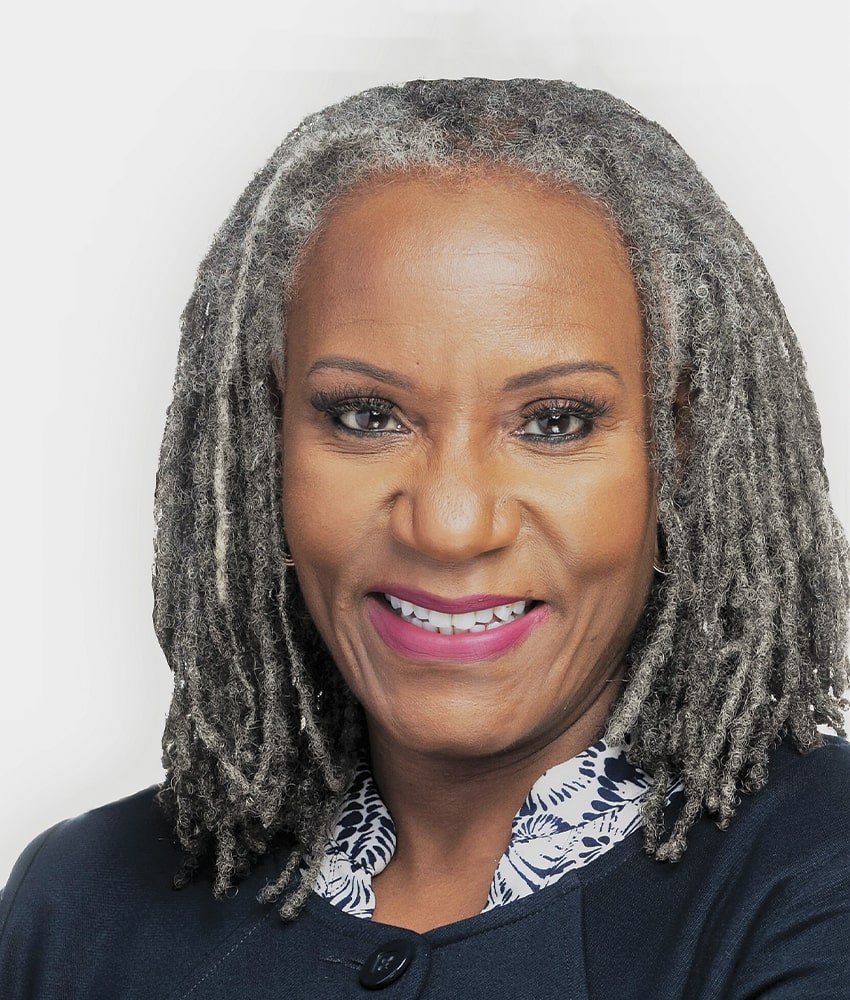
Phyllis Turner-Brim
Vice President, Assistant General Counsel, Starbucks Coffee Company
What regular circumstances still make you anxious?
I still get anxious in environments where I do not know anyone. This is particularly true when the group is small and intimate. I have had to practice and have perfected the skill of “never meeting a stranger.” By contrast, I have no anxiety about standing up and speaking in front of hundreds of strangers.
How do you deal with relationship ruptures?
I am a fan of the direct approach. When I experience challenges with a person I am in a relationship with, I tend to engage them directly and urgently about it. Sometimes the challenges can be worked through and sometimes they cannot, but letting things linger is most often not the right thing to do.
I am a fan of the direct approach. When I experience challenges with a person I am in a relationship with, I tend to engage them directly and urgently about it.
What are your most challenging professional vulnerabilities?
Hands down, it is letting people get to know me on a personal level. My organization has a culture of relationships, and many of the executives have personal relationships with each other. I am not one to share a lot about my personal life with coworkers and peers. It’s not really because I am guarded—I just don’t think my life is that interesting to others.
What have been the most challenging obstacles for you in your career?
People underestimating my abilities. Time and time again, I have had to prove that I am capable of accomplishing things beyond what people expect. This gets tiresome because, at some point, I would expect my track record to speak for itself.
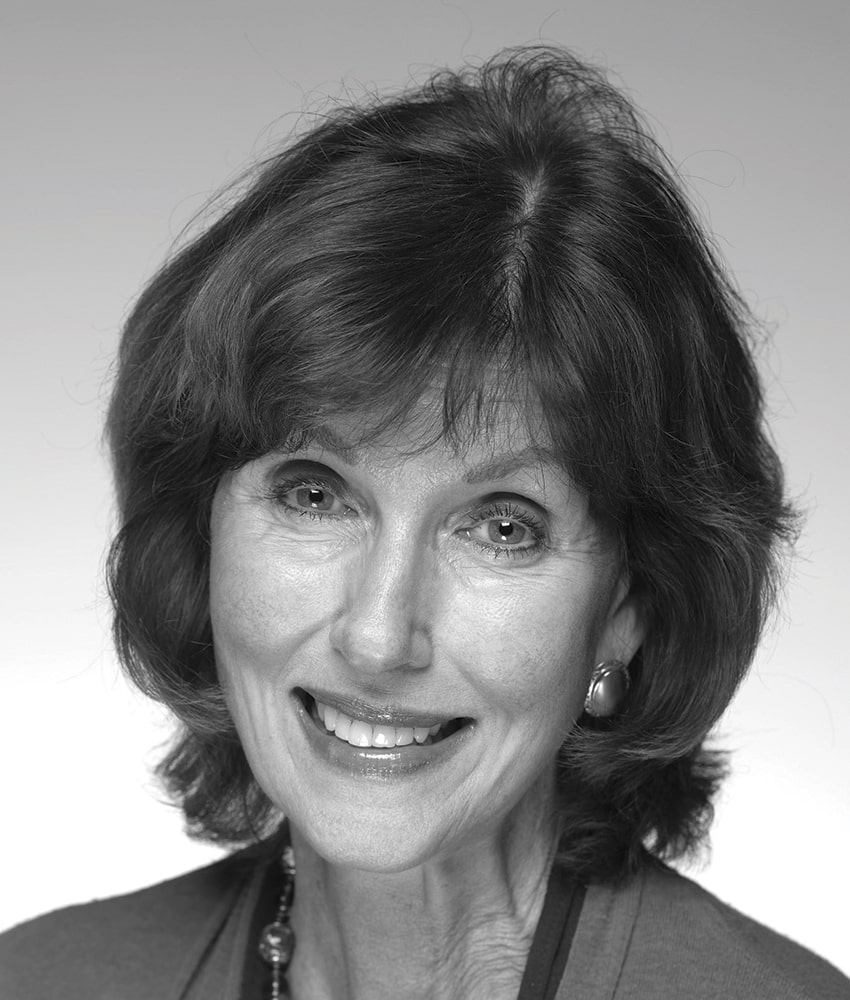
Betty Hudson
President, Hudson & Associates; former chief communications officer for the National Geographic Society; previous senior communications positions at NBC, the Reader’s Digest Association, and more
What regular circumstances still make you anxious?
Any situation in which I am wondering, Why am I here?—especially if I’m thinking that others are asking themselves, Seriously, why is she here? Those feelings of belonging and being wanted are kind of primal needs for people.
How do you deal with relationship ruptures?
I treasure my relationships, so I try to be attuned to the state that they are in. A true rupture would be pretty extreme, and probably doesn’t happen because of a single episode, so finding ways to rebalance dynamics when something feels off kilter—but before we’ve deteriorated toward “rupture”—is my MO. I’m pretty direct, so I usually try to get the person into a semisocial setting—lunch, drinks, whatever—and put whatever is nagging or concerning me on the table. Sometimes just being willing to bring something up is saying to the other person that you care enough to try, and that in itself will help stabilize the relationship. Sometimes, one of us may have overreacted or misread the situation. Clearing the air is always good.
In business, if I had been in an intense meeting with a group debating different ways to manage a problem, I would then find time later to walk around the office and stick my head into people’s lairs just to check in. If we had been on opposite sides of an issue, I might ask for additional info or follow up in some way that would signal I’m listening or just asking if we are OK.
In the late 1970s, I was a single, six-foot-tall, young, Southern woman who appeared in the media business in New York City. That work environment was not exactly welcoming.
What are your most challenging professional vulnerabilities?
Lately, I’m aware of the extraordinary challenge of just keeping up with the worlds of business, technology, and politics in a way that enables me to still be relevant and “in the conversation.” The pace of change and the myriad ways in which change is happening are intimidating. I’m aware of my own sensitivity to the “probably too old to contribute” bias with which we now-older professionals can sometimes be viewed. And now that I have moved to that next stage of life where I don’t have a full-time gig with the associated credentials (some call that retired—a term I hate), finding ways to communicate that I might still have value (ways that don’t feel sort of needy) can contribute to feelings of vulnerability.
What have been the most challenging obstacles for you in your career?
The challenges have varied based on my age and stage. My early working years coincided with the sea change of more women participating in the workplace in nonclerical roles. In the late 1970s, I was a single, six-foot-tall, young, Southern woman who appeared in the media business in New York City. That work environment was not exactly welcoming. There wasn’t just one set of biases, there was a basketful—everything from ageism to misogyny to geographical prejudice (some believe Southerners just aren’t that sharp). Finding my footing had to include making my male colleagues more comfortable and accepting of me as a team member when they had historically not played with females. While I obviously had to deliver on the work itself, having a sense of humor was an enormous help. Looking back, it may have been what helped me get in and stay in the game (to keep the sports metaphors going). Finding ways to laugh with someone can be a form of bonding and relationship building that can bridge everything from hierarchies to prejudice.
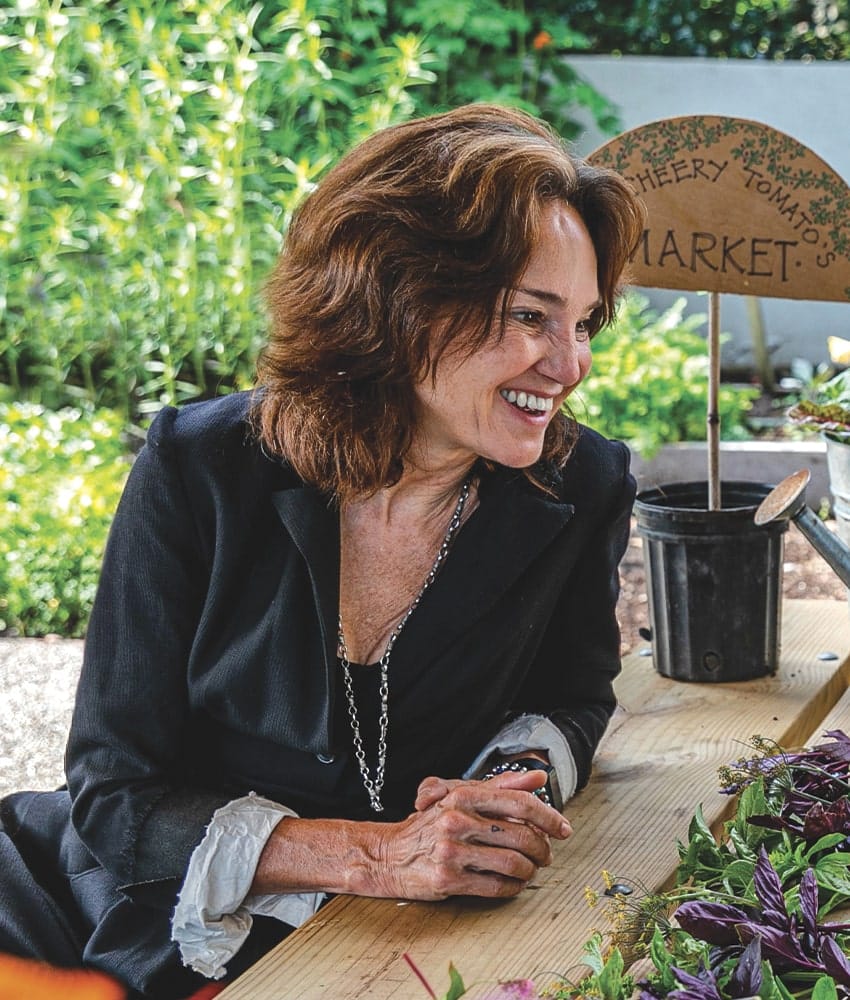
Carrie Barratt
CEO and the William C. Steere Senior President of the New York Botanical Garden; former deputy director for collections at the Metropolitan Museum of Art
What regular circumstances still make you anxious?
The weather—more specifically, the climate. All of my life, thinking about the weather meant planning what shoes to wear or whether to carry an umbrella or put on a scarf. Now, the term weather can mean conditions that challenge not only the comfort zones of humans, plants, and animals, but also conditions that threaten our very existence. There’s hope, though. I relieve my anxiety by eating a plant-based diet, taking joy in sharing the wonder and science of plants with visitors to the botanical gardens, and working to sustain our 250 acres—a little piece of the planet—which is something we can all do.
What are your most challenging professional vulnerabilities?
There was a steep learning curve as I moved from a museum of art to a museum of plants. But I realized that I had a chance to redefine cultural experience as one that creates joy—not just happiness, but awe-inspiring, get-out-of-your-head joy. My passion for learning, sharing, asking questions, and listening carefully actively conjures strength when my subject-area knowledge is weak. Curiosity is key.
What have been the most challenging obstacles for you in your career?
Obstacles melt away through collaboration and understanding. I like to ask, “What are we solving for?” It’s a simple concept that reframes a problem. So often we are grappling with a symptom rather than addressing the core issue, and this helps us get to the root.
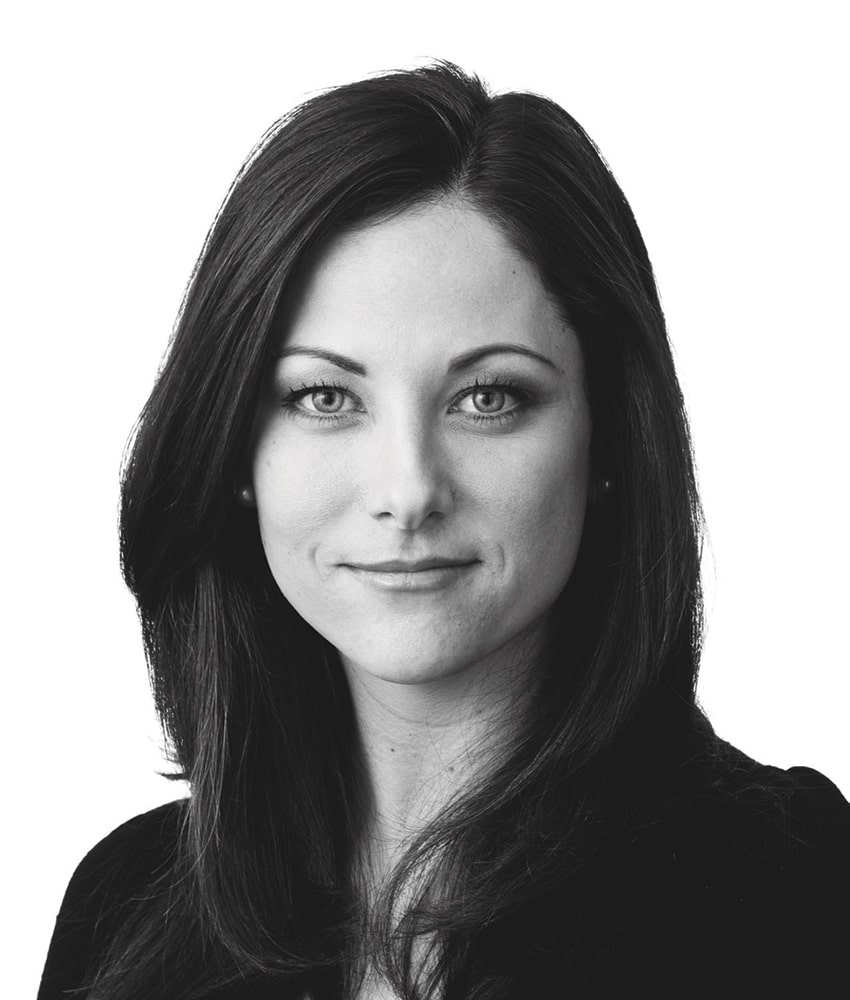
Maureen Sullivan
COO, Rent the Runway
How do you deal with relationship ruptures?
Whenever I am feeling the strain and stress of a relationship not going in the right direction, I have a life motto that has always served me: “It’s hard to hate up close.” Whenever I am feeling frustrated, upset, hurt, or misunderstood by someone, I fight the natural instinct many of us have to pull away and instead do everything I can to get closer. It’s never easy, as it is my natural independent way to try and shut down or flee from what is causing me stress; however, I have learned that fleeing is futile. The only real breakthroughs come when I pull the situation as close to me as humanly possible and work through the often messy, complicated, and dynamic mix of thoughts and emotions causing the relationship strain.
Everything is better understood when you embrace it “up close”—and even if something feels impossible to overcome, when I see it closer I feel an empathy and sensitivity that enables me to move to a place of finding solutions, compromise, common ground, and, ultimately, positivity. As someone who has learned that being “too sensitive” is not a fault, but one of my superpowers, learning how to channel that sensitivity into deep connections and positive outcomes is a focus I know will continue to be front and center for me throughout all moments of my life.
What regular circumstances still make you anxious?
Now in my late thirties, I’m amazed at how my fears, worries, and anxieties have shifted. Early on in my career, I worried about things that, at the time, felt like career-defining moments: big pitches, stressful deadlines on operationally complex projects, opportunities to take on new, yet unknown challenges. Now, as life moves even quicker and the years tick by, the focal point of my anxiety has shifted. I am much more cognizant now that time is truly my most valuable commodity, and most of my anxiety centers around maximizing my time and ensuring that it is spent with the people, ideas, and values that give my life purpose and meaning. I often think of this Thomas Edison quote: “Time is really the only capital that any human being has, and the only thing he can’t afford to lose,” reminding me of the true gift that time is and its power in our lives.
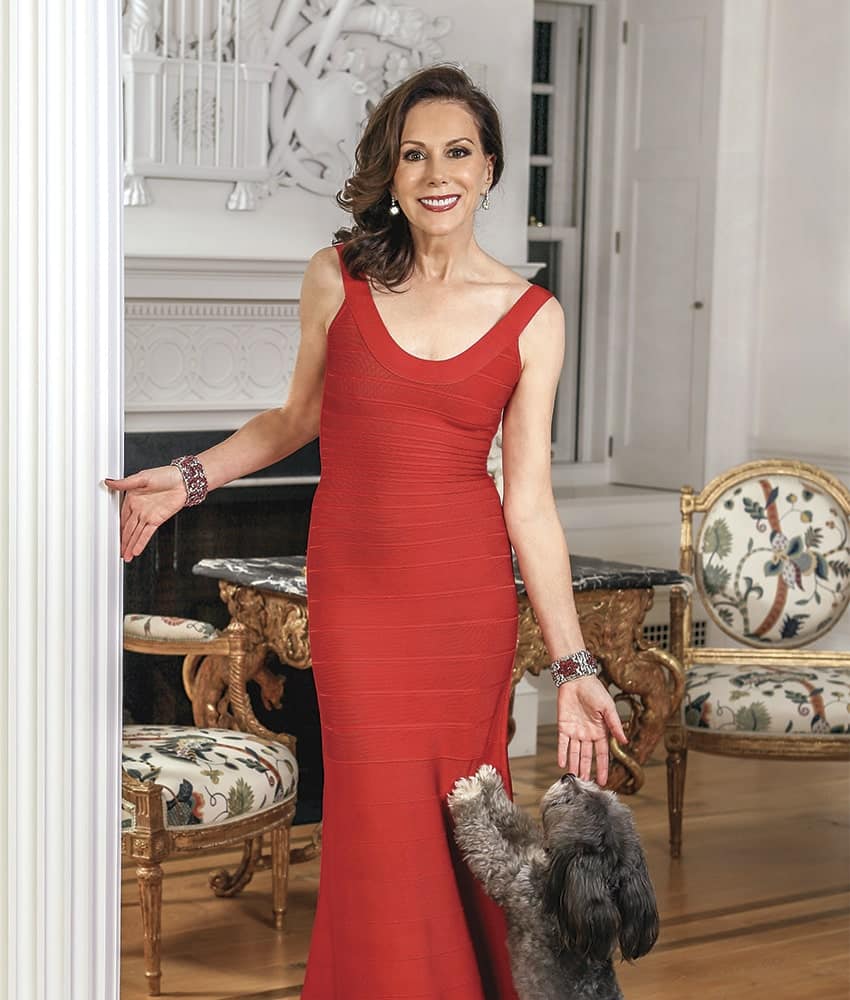
Carolyne Roehm
Fashion designer and author
What regular circumstances still make you anxious?
I find that there are so many parallels between one’s private world and one’s professional world. The same anxieties and needs, and many of the same hopes and dreams, exist in both of those worlds. I get nervous when I am late. I grew up with a mother who was constantly on my case about being on time. I can hear her saying, “Your time is not more important than others’.” Of course, I had to end up with a partner who does exactly the same thing. And anytime I make a presentation that exposes anything I have created, I always feel anxious. But, as they say, that comes with the territory.
How do you deal with relationship ruptures?
I am from the Show Me State (Missouri). I was brought up with the notion that “Talk is cheap; actions prove.” When someone talks a good story but will not show me (by their nonperformance of what I consider to be a reasonable task), I walk away from that person. Saying “trust me” is not enough. This is possible to do in a business situation; however, I have shot myself in the foot by sometimes walking away too quickly. On the other hand, it is so very hard, if not impossible, to do in a love situation.
I find that there are so many parallels between one’s private world and one’s professional world. The same anxieties and needs, and many of the same hopes and dreams, exist in both of those worlds.
What are your most challenging professional vulnerabilities?
I definitely know my most challenging professional vulnerability is always asking myself the questions Am I good enough? and How does my work stack up against my direct competition? There are moments when I only care about this, and then there are moments when I grow up and say to myself, I do not care. I am me, and at this moment in time, this is the best I can do. Unfortunately, there are more instances of the former than the latter. That said, that fear chases one to try and always “jump the higher fence”!
What have been the most challenging obstacles for you in your career?
My biggest obstacle in my career has always been myself. I let the evil worm of self-doubt eat away at my confidence. But then I give myself a pep talk and just get on with doing what I need to do. (I should clarify that I have no children and I am an only child; therefore, there is a huge gamut of worries that I do not share with other women. The flip side is that I have other concerns and worries, such as who will take care of me, as I am taking care of my mother, when I am an old woman?)
— V —
Suzanne Pollak, a mentor and lecturer in the fields of home, hearth, and hospitality, is the founder and dean of the Charleston Academy of Domestic Pursuits. She is the coauthor of Entertaining for Dummies, The Pat Conroy Cookbook, and The Charleston Academy of Domestic Pursuits: A Handbook of Etiquette with Recipes. Born into a diplomatic family, Pollak was raised in Africa, where her parents hosted multiple parties every week. Her South Carolina homes have been featured in the Wall Street Journal “Mansion” section and Town & Country magazine. Visit CharlestonAcademy.com or contact her at Suzanne@CharlestonAcademy.com to learn more.
Share This Story!
KEEP UP WITH THE LATEST STORIES FROM VIE
















































































































































